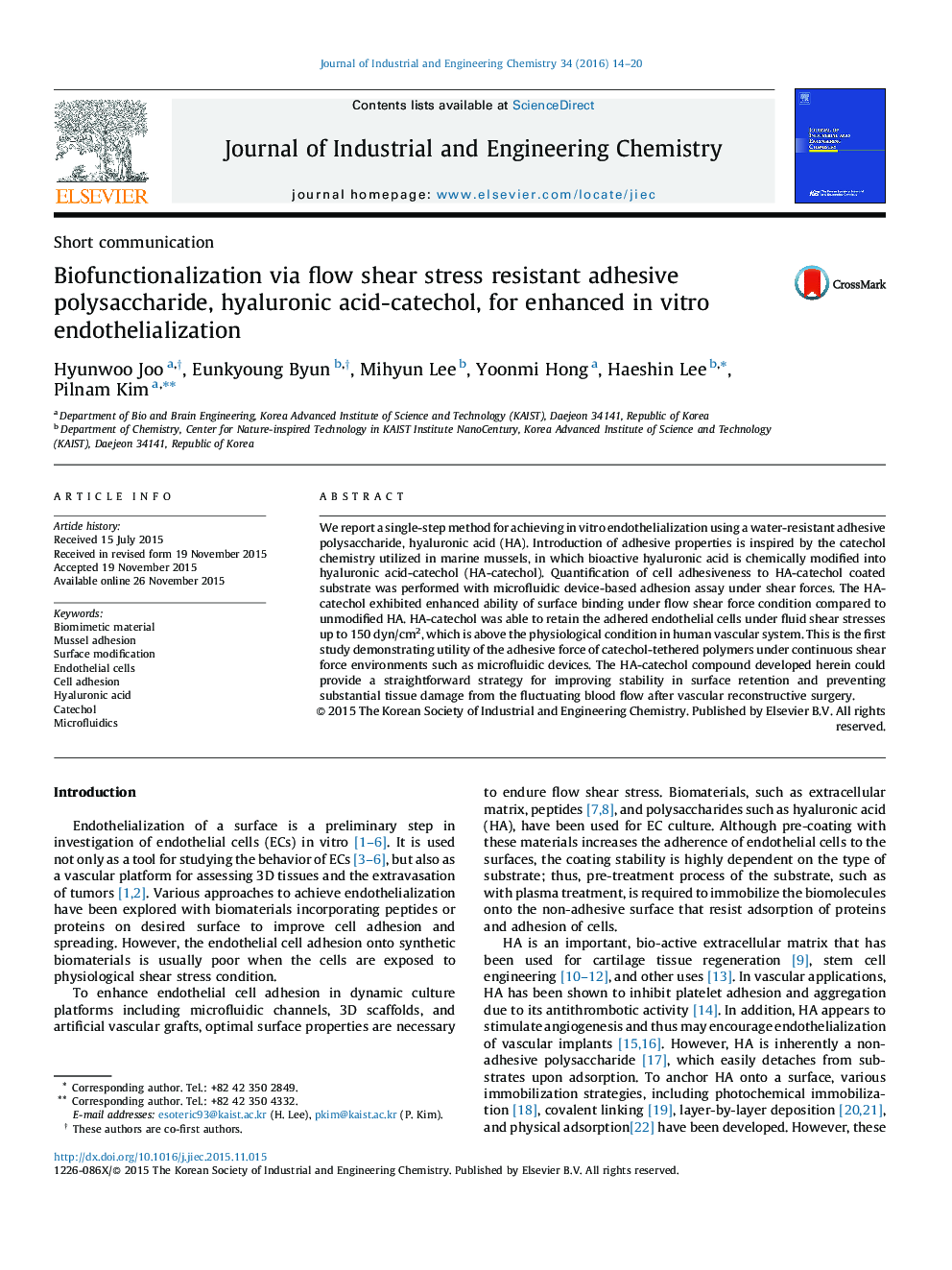| Article ID | Journal | Published Year | Pages | File Type |
|---|---|---|---|---|
| 228224 | Journal of Industrial and Engineering Chemistry | 2016 | 7 Pages |
We report a single-step method for achieving in vitro endothelialization using a water-resistant adhesive polysaccharide, hyaluronic acid (HA). Introduction of adhesive properties is inspired by the catechol chemistry utilized in marine mussels, in which bioactive hyaluronic acid is chemically modified into hyaluronic acid-catechol (HA-catechol). Quantification of cell adhesiveness to HA-catechol coated substrate was performed with microfluidic device-based adhesion assay under shear forces. The HA-catechol exhibited enhanced ability of surface binding under flow shear force condition compared to unmodified HA. HA-catechol was able to retain the adhered endothelial cells under fluid shear stresses up to 150 dyn/cm2, which is above the physiological condition in human vascular system. This is the first study demonstrating utility of the adhesive force of catechol-tethered polymers under continuous shear force environments such as microfluidic devices. The HA-catechol compound developed herein could provide a straightforward strategy for improving stability in surface retention and preventing substantial tissue damage from the fluctuating blood flow after vascular reconstructive surgery.
Graphical abstractFigure optionsDownload full-size imageDownload as PowerPoint slide
